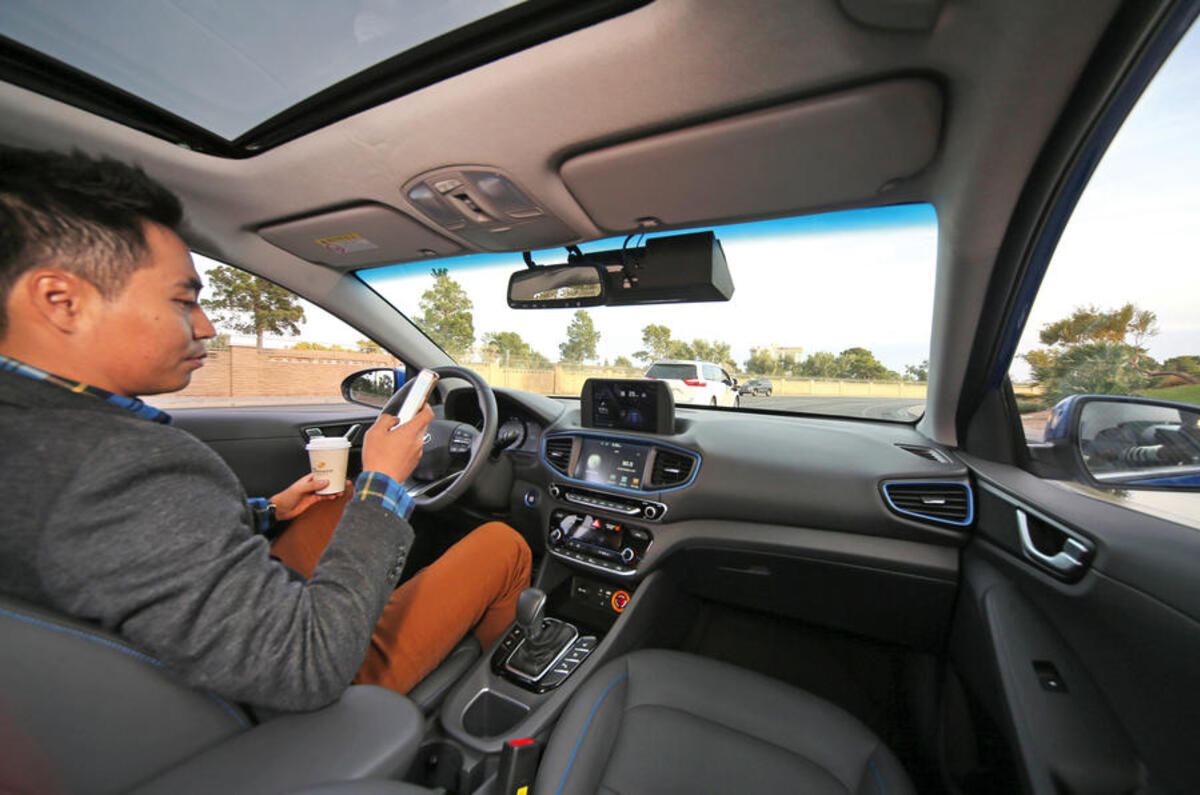The Department for Transport (DfT) has outlined plans for cars equipped with Automated Lane Keeping Systems (ALKS) to be legally defined as self-driving, which would legalise hands-off operation of such cars at low speeds.
Essentially, if approved, the move represents the first step towards allowing appropriately equipped cars to drive themselves on UK roads.
If they're granted type approval and there's no evidence "to challenge the vehicle's ability to self-drive", these cars could be allowed to operate independently of the driver on motorways at speeds of less than 37mph by the end of the year.
The DfT defines ALKS as those which "enable a vehicle to drive itself in a single lane, while maintaining the ability to easily and safely return control to the driver when required".
According to the DfT, the technology could improve road safety; it cites human error as a contributing factor in more than 85% of accidents.
The roll-out of the new regulation is contingent on alterations to the Highway Code which will "ensure the first wave of this technology is used safely and responsibly". A consultation on these changes will conclude on 28 May.
Looking forward, the DfT anticipates that autonomous driving and vehicle connectivity technology will serve to ease congestion in urban areas (and thereby reduce emissions), improve efficiency, improve the accessibility of public transport services and - by 2035 - create around 38,000 jobs in the UK.
Commenting on the announcement, SMMT chief executive Mike Hawes said: "The automotive industry welcomes this vital step to permit the use of automated vehicles on UK roads, which will put Britain in the vanguard of road safety and automotive technology.
"Automated driving systems could prevent 47,000 serious accidents and save 3900 lives over the next decade through their ability to reduce the single largest cause of road accidents: human error.
“Technologies such as Automated Lane Keeping Systems will pave the way for higher levels of automation in future – and these advances will unleash Britain’s potential to be a world leader in the development and use of these technologies, creating essential jobs while ensuring our roads remain among the safest on the planet.”
READ MORE
Analysis: Will intelligent roads finally move self-driving cars into the fast lane?
Inside the industry: Will insurers pay if self-driving cars cause crashes?
Under the skin: How AI makes autonomous cars react like humans








Join the debate
Add your comment
@ Deputy, In fairness to you Deputy, I had mis-read that so I take back my 37 mph argument, but stand by the other points I made.
No one can ever make transport zero risk. As soon as the human body starts moving at more than walking pace, the risk to life begins to rise (we are basically quite frail.
I would suggest the money would be better spent on better driver training.....the standards are frankly apalling, and the lack of foresight is mind-blowing. The assumed right to hold a driving licence is utter madness, some people should never have one no matter how many times they attempt the test. They just dont have the required skill sets.